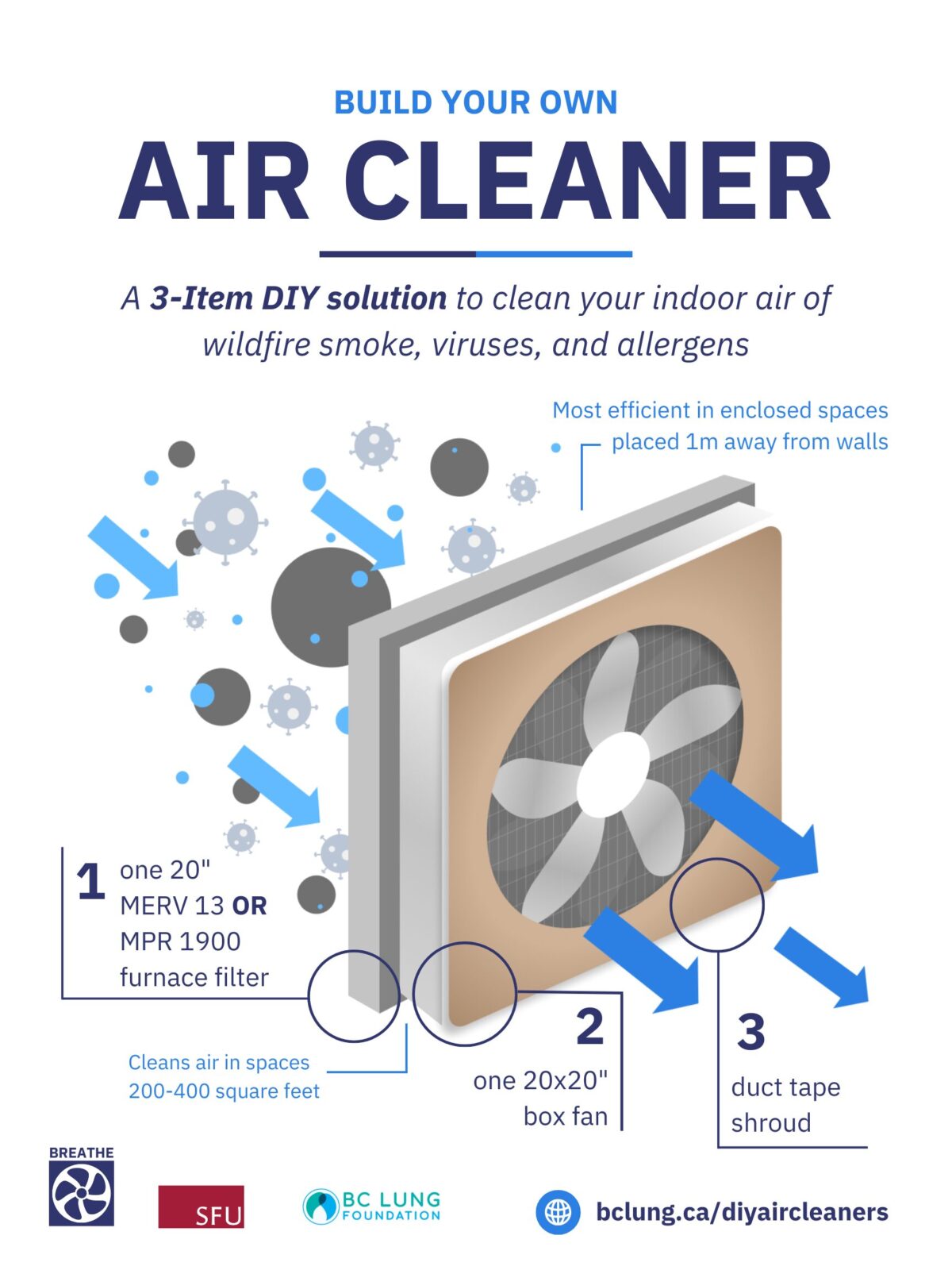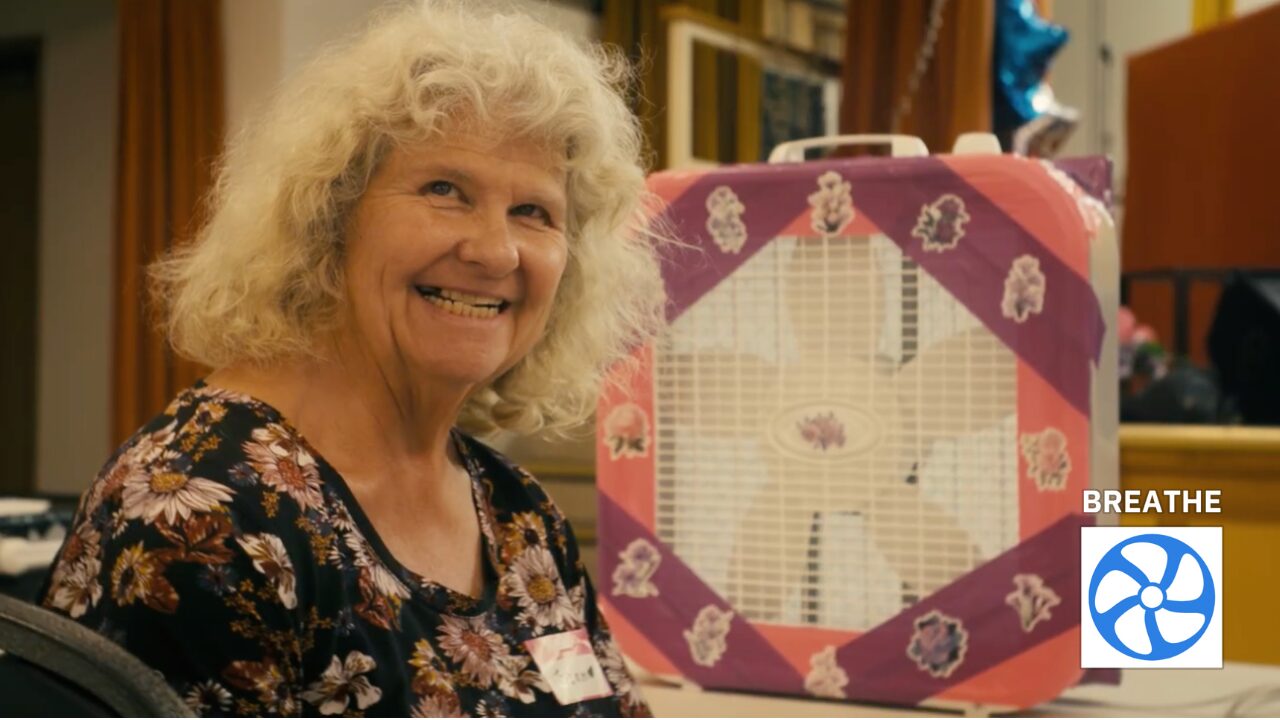The BREATHE Project: DIY Air Cleaners
Building Resilience to Emerging Airborne Threats and Heat Events
Simon Fraser University is working with the BC Lung Foundation to host the BREATHE Project, a community-based research initiative that teaches community members how to build DIY air cleaners to improve their indoor air quality.
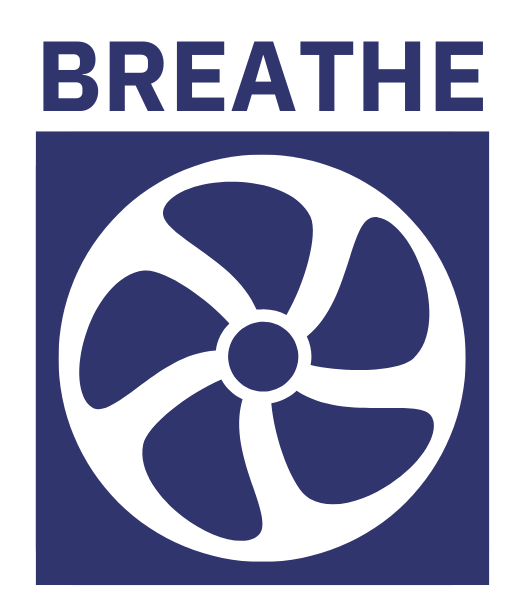
About the Project
The BREATHE Project is a community-based research initiative that teaches community members how to build DIY air cleaners to improve their indoor air quality. Led by Dr. Anne-Marie Nicol, Associate Professor in the Faculty of Health Sciences at Simon Fraser University and in partnership with many organizations, municipalities, and health authorities across British Columbia, the BREATHE Project helps at-risk populations mitigate the urgent impacts of climate change and increases public knowledge on the health risks of wildfire smoke exposure and extreme heat events.
Step by Step Instructions translated into 11 languages
Our Documentary
Community Resilience in the Face of Climate Change: DIY Air Cleaners and the BREATHE Project
This short documentary provides a peek into the experiences of community members, researchers, and community staff as they navigate climate change and its impacts on public health and communities.
Workshop Inquiries
If you would like to inquire about having a BREATHE workshop for your organization or community, please click the button to fill out the form below.
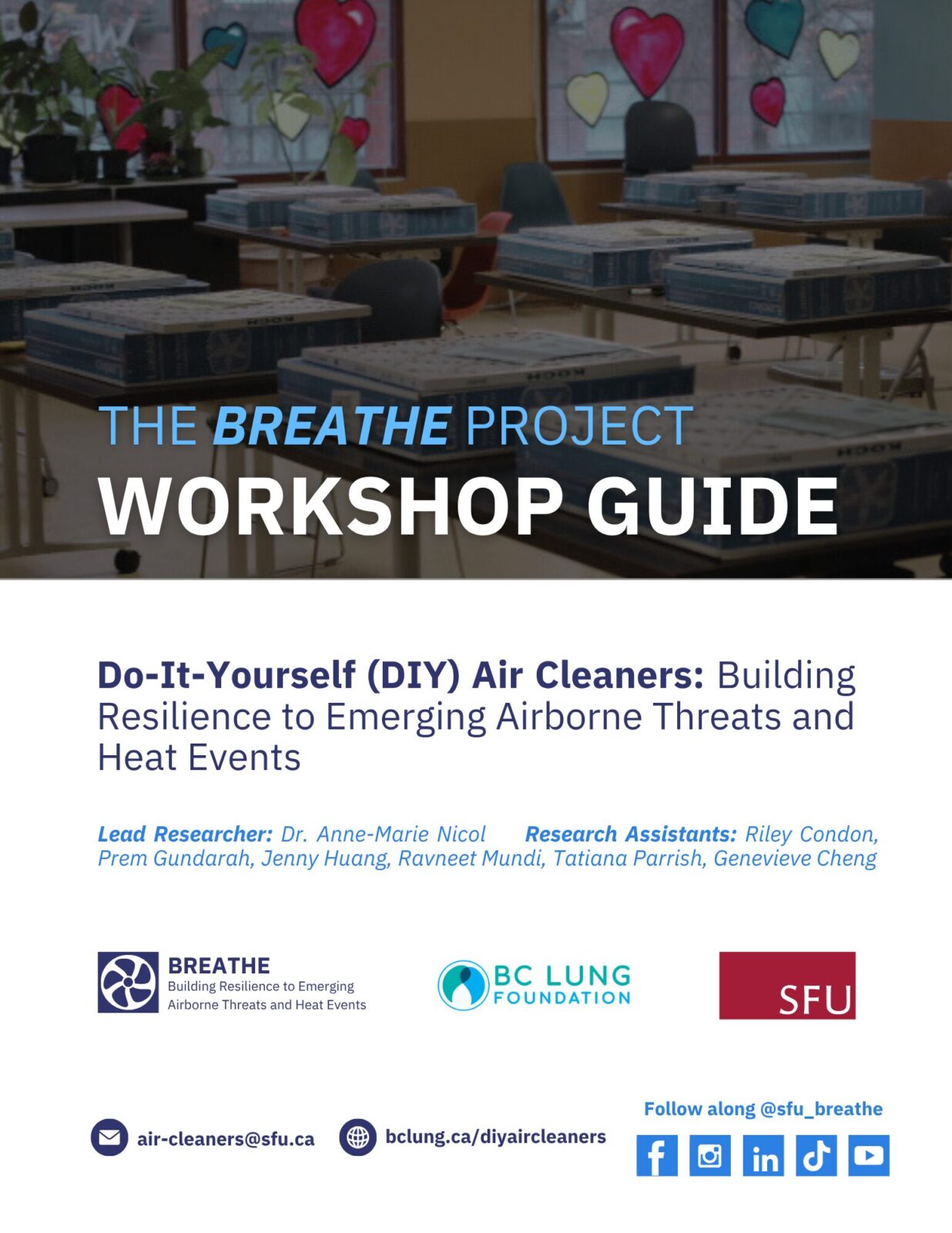
Train the Trainer Guide
Following a DIY air cleaner workshop pilot program in 2023, the SFU Air Cleaner team has developed a ‘train-the-trainer guide’ in consultation with public health officials.
The guide is for organizations, municipalities, and emergency management personnel wanting to host their own DIY air cleaner workshops to build resiliency to wildfires and other indoor air pollution. The train-the-trainer guide provides information on the research and evidence behind the units, the logistics of hosting a workshop, the potential costs, and the challenges that may arise.
Translated Train-the-Trainer Guides in Spanish, Punjabi, and Chinese.
Extreme Heat Event Resources
It is important to note that DIY Air Cleaners are designed only to clean air. Although they use fans, they do not help with cooling and are not a solution for Extreme heat events. For more information on extreme heat, please visit the BC CDC’s Preparing for Extreme Heat Resource page below.
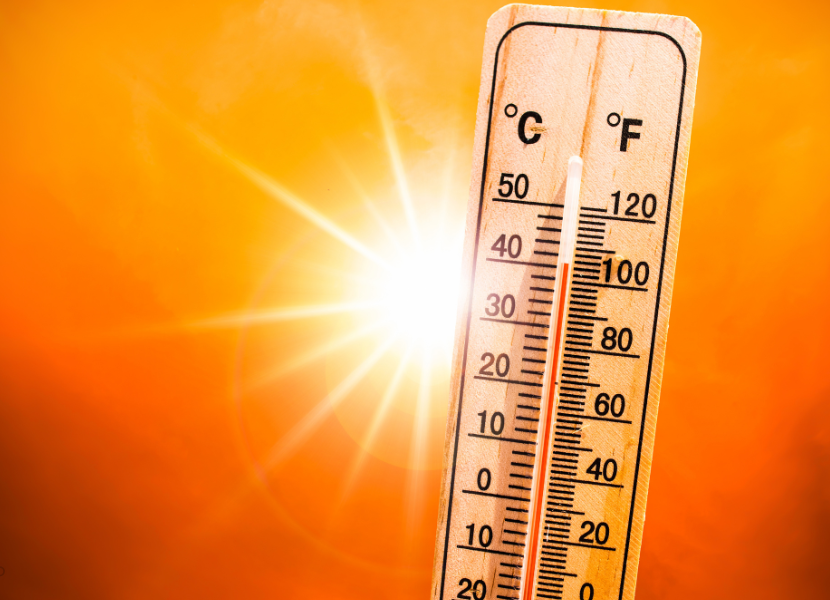
Our Sponsors and Partners
The BREATHE Team would like to thank the following sponsors who have made these workshops and materials accessible to at-risk communities across the province at no cost: BC Lung Foundation, First Nations Health Authority, Fraser Health Authority, Interior Health Authority, Northern Health Authority, Vancouver Coastal Health Authority, Island Health Authority, Pacific Institute for Climate Solutions, Central Okanagan Foundation, Fraser Valley Regional District, Métis Nation British Columbia, SFU’s Community-Engaged Research Initiative (CERi), City of Kelowna, City of New Westminster, City of Vancouver.
Project Background
The increased number of wildfires in BC jeopardizes the health and well-being of individuals from wildfire smoke. It is the populations closest to wildfires who are exposed to the highest levels of wildfire smoke pollutants. However, wildfire smoke can also travel long distances depending on weather patterns, creating prolonged impacts on air quality that affect populations near and far. Cleaning indoor air is one of the most direct ways to improve air quality, especially during wildfire smoke events. While air cleaners are available commercially, they are often expensive and quantities can be scarce during intense fire seasons. This DIY low-cost solution helps improve indoor air quality for at-risk populations and communities. There are many different variations of DIY Air Cleaners. This project selected a simple 1×1 design using evidence drawn from a rigorous review of DIY research conducted by the National Collaborating Centre for Environmental Health (NCCEH). These units have been assessed by safety professionals, and participants are provided with Safer Use instructions to take home with them. The smaller 1×1 design is optimal for people living in smaller spaces, easier to transport, and more straight-forward to have workshop participants build on their own.
Contact Us
For more information on BREATHE or if you would like to be involved, contact us at: AIR-CLEANERS@SFU.CA
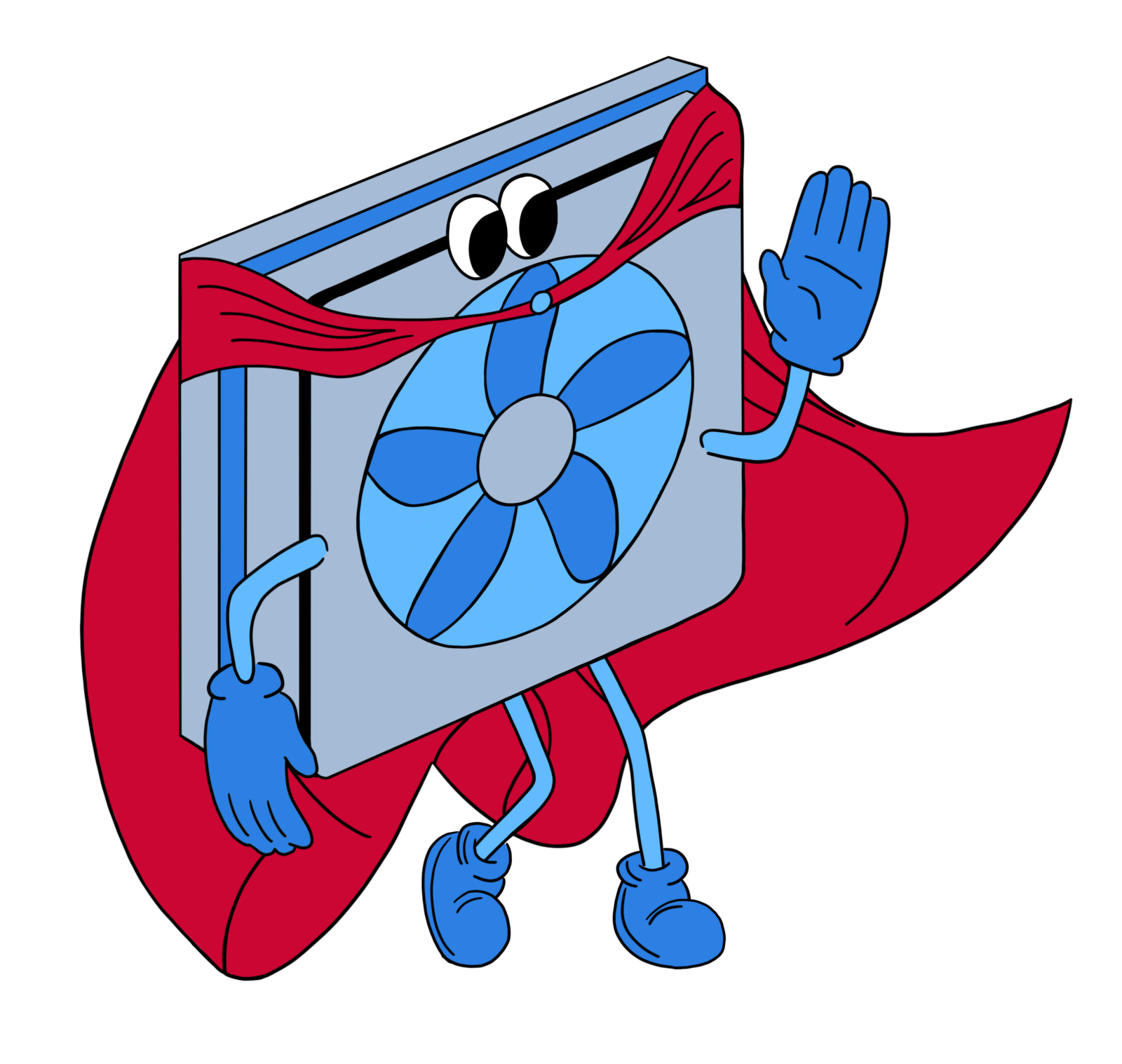
The BREATHE Team
Project lead: Dr. Anne-Marie Nicol (SFU, Associate Professor)
Collaborators: Dr. Menn Biagtan, Dr. Noah Quastel, Dr. Stephanie Cleland
Researchers & Staff: Prem Gundarah, Riley Condon, Matthew Edwards, Genevieve Cheng, Josh Dalmann, Lisa Mizuno, Avery Bressette
